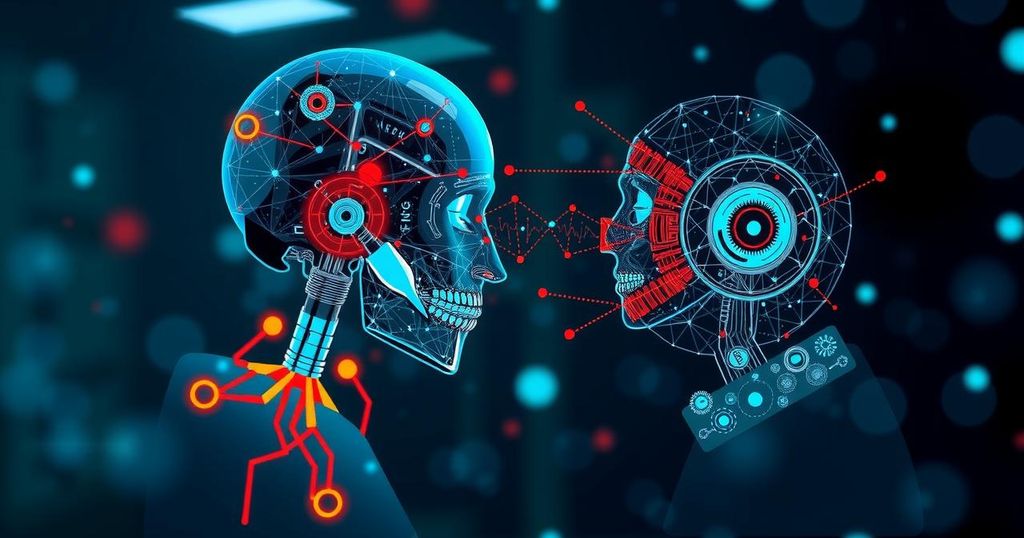AI
ARTIFICIAL INTELLIGENCE, BALLERINA FARMS, BLACK DESERT, BUSINESS, CL, CLÉMENCE ROGER, EMPLOYMENT, GRAND AMERICA HOTEL, HARRISON, MARKETING, MASTERCONTROL SOLUTIONS, MENTAL HEALTH, METASNAKE, NORTH AMERICA, PATRICK MANNING, ROGER, SALT LAKE CITY, SEO, UNITED STATES, UTAH, UTAH BUSINESS FORWARD
Liam Kavanagh
0 Comments
Finding Harmony Between AI and Human Intelligence in the Workplace
AI should be seen as a tool to enhance workplace efficiency, not a replacement for human intellect. Experts emphasize the need for foundational skills to maximize AI’s benefits, as well as the importance of human oversight in maintaining creativity and audience connection. Successful integration hinges on understanding the unique contributions of both AI and human skills, ensuring that technology complements rather than replaces human insight.
In today’s rapidly evolving workplace, balancing artificial intelligence (AI) and human intelligence is crucial. Matt Harrison, a corporate trainer specializing in Python and AI at Metasnake, suggests viewing AI as a learning tool akin to mastering a calculator. Just as students practiced their tables before utilizing calculators, understanding AI’s underlying principles is essential for harnessing its true potential. Without foundational skills, the benefits of AI can remain elusive.
During a recent conference, Harrison emphasized the importance of working smarter—not harder. AI shines in handling repetitive tasks, liberating time for creativity. However, AI requires human oversight to ensure accuracy and engagement. Clémence Roger, a leading figure in SEO, cautioned against the trap of generic AI-driven marketing. “The quality of your input equals the quality of your output,” she stated, asserting that nuanced guidance is vital for effective AI application.
Moreover, the synergy between AI and human intellect is evident. While AI excels in data processing and brainstorming, humans bring creativity and contextual understanding to the table. Empathy and the ability to connect with audiences differentiate human contributions from AI outputs. As Roger points out, testing audience engagement with AI-generated content is crucial. Questions about audience awareness and acceptance can guide effective implementation.
Navigating the frontier between AI and human insight requires careful contemplation. Recognizing that while AI can amplify efficiency and innovation, it cannot replace the unique depth of human understanding and creativity is vital. Organizations that harness this balance will thrive in an increasingly competitive landscape.
The integration of artificial intelligence into workspaces has sparked debates about its role and impact on human skills. Professionals argue that while AI can automate tasks and enhance productivity, reliance without foundational knowledge may lead to limited understanding of its functions. Experts stress the importance of equipping employees with core skills to leverage AI effectively, transforming it into a partner rather than a replacement. This discussion encompasses various industries and highlights the need for a symbiotic relationship between technology and human intellect.
The dialogue around AI and human intellect at the conference underscores a fundamental truth: while AI is a powerful ally, it thrives alongside human creativity and empathy. As professionals adapt to AI’s role in their workflows, they must remain vigilant about maintaining their core skills and understanding the audience they serve. Embracing this balance will pave the way for not only efficiency but also distinctive and engaging outcomes that reflect authentic human insight.
Original Source: www.deseret.com




Post Comment